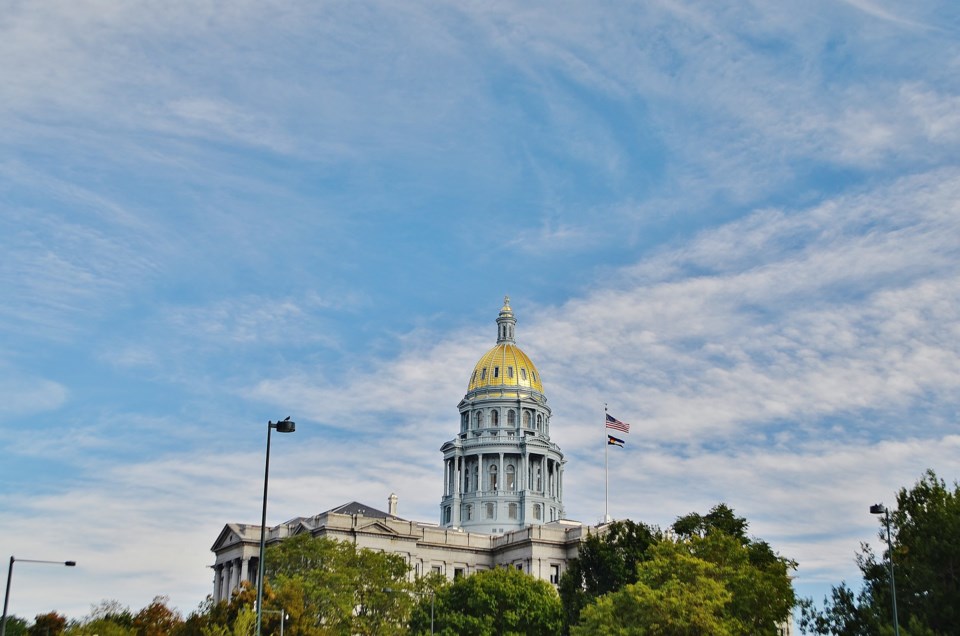This story was originally published by Chalkbeat. Sign up for their newsletters at ckbe.at/newsletters
A bill drafted by young Coloradans would require educators statewide to call students by their preferred name upon request.
Sponsors said the legislation is an effort to support transgender youth and protect them from bullying. The Colorado Youth Advisory Council, a group of 40 students from across the state, helped state lawmakers draft the bill.
During an almost-four-hour committee hearing Thursday, supporters of House Bill 1039 said the bill would curtail discrimination against transgender students and create a more inclusive environment statewide. Opponents said the bill would infringe on educator and parent rights, as well as create problems in classrooms and spur potential legal issues.
House Education Committee members approved the bill by a 7-to-4 vote along party lines, with Democrats voting in favor and Republicans voting against the measure.
State Rep. Stephanie Vigil, a Colorado Springs Democrat sponsoring the bill, said many transgender youth feel like their self-expression hasn’t been respected by school districts.
State Rep. Brianna Titone, an Arvada Democrat, and Democratic state Sens. Faith Winter, of Westminster, and Janice Marchman, of Loveland, are also sponsoring the bill.
“Colorado prides itself so much on being welcoming, where people are free to be themselves and how they live,” Vigil said to the education committee members. “We feel like it’s important to act on that.”
House Bill 1039 would require Colorado public schools to adopt policies to ensure educators honor a student’s request to be called by a preferred non-legal name. The bill would require schools to list a student’s preferred name on unofficial school documents such as identification cards, yearbooks, or attendance lists.
Under the bill, students would not have to legally change their name for an educator to call them by that name. The bill ensures schools would conform to non-discrimination laws.
The bill is supported by groups such as One Colorado, an LGBTQ+ advocacy organization, and the Colorado School Counselors Association.
During the hearing, numerous transgender youth testified that district policies often don’t honor who they are. They said many educators insist on using students’ legal names. The students said they’ve dealt with bullying and terrible treatment, and the bill, if passed, would help them in the classroom.
“The steps that we’re taking would create an environment where being transphobic is not tolerated,” said Theo Martin, an 18-year-old student at Lewis-Palmer High School.
Martin said in an interview that he testified on Thursday because his friend committed suicide five months ago after intolerable treatment at school.
Martin said he’s also personally experienced intolerance. Educators have used his legal name as a way to disrespect him, and a fellow student threw a basketball at him and broke his nose when he came out, Martin said. He added that legally changing his name is a costly and difficult step.
Seventeen-year-old Sam Charney said they want the same rights as other students. They said it’s been an uphill battle to get their school to recognize their identity.
“A legal name change is expensive and most people don’t have access or the ability to do that,” Charney said. “This will give the students the tools to be able to live their authentic self.”
Opponents included numerous far-right, parents rights, and Christian groups. Several charter school advocates also spoke against the bill.
Opponent Donna LaBelle said she worried that students would start changing their names several times a month, which would confuse teachers. She also said children’s legal names are important to parents.
“You probably remember how important that decision was to give someone their name,” she said.
In voting against the bill, House Minority Leader Rose Pugliese, a Colorado Springs Republican, said she wanted proponents to know she heard their experiences, but she voted no because the bill doesn’t require schools to tell parents if their children ask to be called by a preferred name.
Jason Gonzales is a reporter covering higher education and the Colorado legislature. Chalkbeat Colorado partners with Open Campus on higher education coverage. Contact Jason at [email protected].
Chalkbeat is a nonprofit news site covering educational change in public schools.



